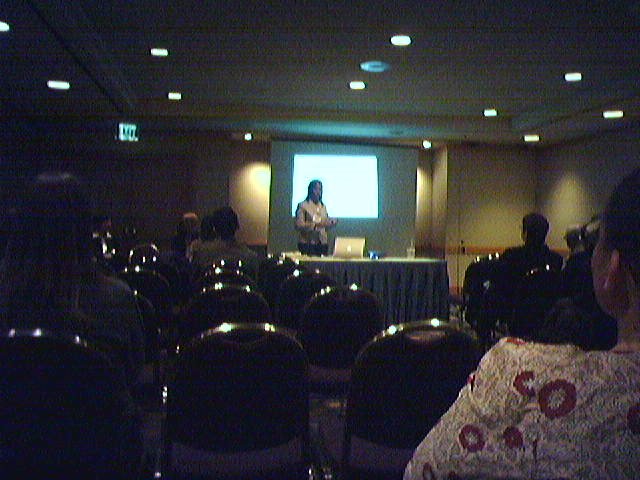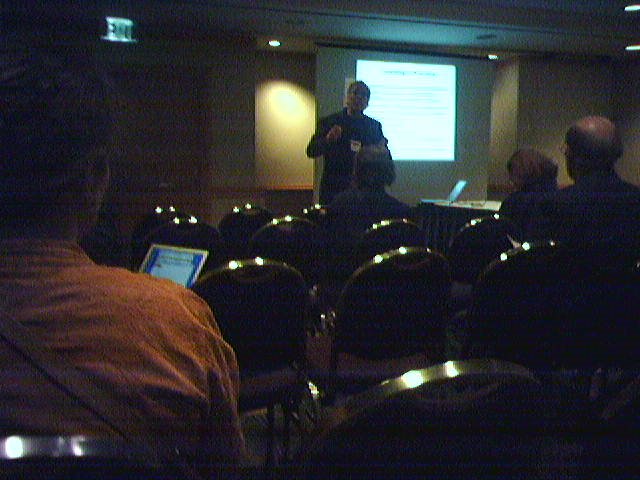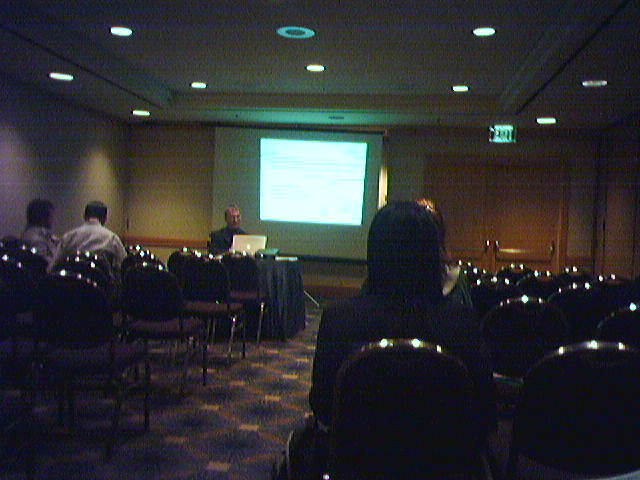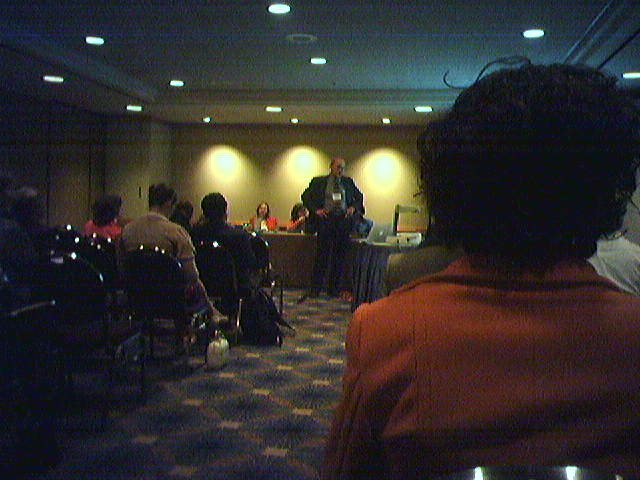How do you define creativity?
Ultimately it's the process of having original ideas, but there are several steps. The first step is imagination, the capacity that we all have to see something in the mind's eye. Creativity is then using that imagination to solve problems -- call it applied imagination. Then innovation is putting that creativity into practice as applied creativity.
Wednesday, April 26, 2006
Scanlon, 2006
Byrnes & Arndt, 2006
- Pay incentives that punishes bad competition and bad production and bad productivity.
- Culture of knowledge sharing.
- Innovation from within.
Poggenpohl & Sato, 2003
Davis & Simmt, 2003
Joseph, 2004
Tuesday, April 25, 2006
Tabak, 2004
Sandoval, 2004
Saturday, April 22, 2006
Hoadley, 2004
Hoadley, C. M. (2004). Methodological alignment in design-based
research. Educational Psychologist, 39, 203-212.
Larson & Lockee, 2005
Larson, M. B., & Lockee, B. B. (2005). Workplace cultures: Preparing instructional designers for varied career environments. In M. Orey, M. A. Fitzgerald, & R. M. Branch (Eds.), Educational media and technology yearbook 2005 (Vol 30). Englewood, CO: Libraries Unlimited.
Molenda & Bichelmeyer, 2005
Molenda, M., & Bichelmeyer, B. (2005). Issues and trends in instructional technology: Slow growth as economy recovers. In M. Orey, M. A. Fitzgerald, & R. M. Branch (Eds.), Educational media and technology yearbook 2005 (Vol 30). Englewood, CO: Libraries Unlimited.
McKenney, 2003
McKenney, S. (2003). Developing science education materials via
computer-based support. In M. Orey, M. A. Fitzgerald, & R. M. Branch
(Eds.), Educational media and technology yearbook 2003 (Vol 28).
Englewood, CO: Libraries Unlimited.
Sunday, April 16, 2006
Salter, 2006
Salter, C. (2006, April). A prescription for innovation. Fast Company,
104, 83-86.
SPARC, see, plan, act, refine, communicate
Adult learning is in need of fresh ideas.
Do a history, listen, think about all possibilities, it's purposely
broad to avoid locking into a early diagnosis. Or designers an early
solution
Understanding user needs. 3 types explicit and tacit by interview and
survey, can't be articulated by observation, latent needs the only way
to identify them is to make something and have people experience
it.-Ryan Armbruster
Iterate until you get a physical and emotional response.
Doctors or managers propose a problem. Sparc assembles a cross
functional team. Crash course in design methodology, by second hour out
with cameras, notepads, tape recorders.
Friday, April 14, 2006
Sandoval & Bell, 2004
Saturday, April 08, 2006
Virginia Berninger
Instruction adds cause effect to imaging.
Imaging alone is correlational.
Brain literacy for ...
Jere Brophy
Wrong grain size, for underrepresented populations, lack of critiical
climate, content domain waning,
Sian Proctor

Contour Maps: What do children see?
Cognitive strategies
Which strats are predictors of success.
Cognitive Map Memory Test
Spatial cognition
Visualization, spatial visualization
Wednesday, April 05, 2006
Keisha Varma

Technology obstacles.
Half of obstacles were not part of curricular intervention. Tech
infrastruture problem.
Implementation obstacles.
Joe Krajcik

Understanding scientific practices
Learning goals driven design
Investigations, data gathering, organization and analysis, explanation,
argumentation, scientific modeling,
Dylan Wiliam

What kinds of assessment promote learning?
www.dylanwiliam.com
Pedagogy / curriculum
Learning power / literacy, numeracy, concepts, facts
5 effective strategies
Knowledge transmission
Act their way into a new way of thinking
Proviiding information, ready to move on, adapt instruction,
Discussion vs diagnosis questions
Tuesday, April 04, 2006
John Bransford

How people learn science. Learning science and science learning.
Implicit, informal & formal.
Structure of schools.
Distributed expertise.
Test how schematized your knowledge is.
Schema acquisition, testing efficiency.
Functional fixedness, tyranny of success.
Ability to let go of assumptions, innovation
Making thinking visible
Challenge based approach, increased discussion, interaction, enjoyment
Adams, designing engineering curriculum, design studies, grad students
increased questions
Monday, April 03, 2006
Jeff Dodick

The attitudes of orthodox jewish science teachers towards the teaching
of geological time (and other "controversial" topics in science.
Historical/philosophical approaches
Surveys of different populations
.scientists,teachers,students,
Vogt & Neuhaus

Using video data to correlate different attitude types of biology
teachers with their way of teaching
3 studies: classification, sociodemographic differences, correlation
Design of open standardized questionnaire
3 types of teachers emerged
John Frederiksen

The impact of maintaining a consistent approach to teaching and
assessing scientific inquiry throughout middle school.


